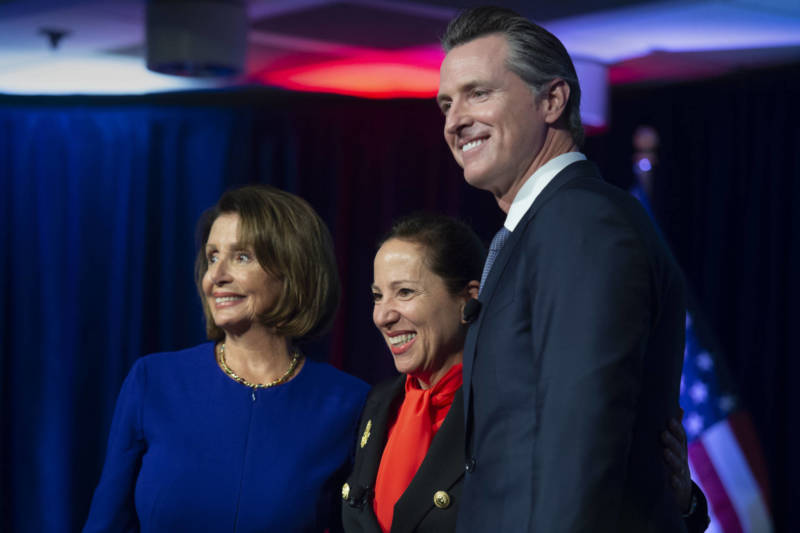That’s what happened in the 2003 recall when 135 candidates clogged up the ballot. The election was held on Oct. 7, 2003, which, according to an analysis co-written by Stracener, gave potential candidates 16 days to qualify for the ballot.
Stracener said, this time, he thinks the lieutenant governor will try to strike a balance when deciding when the election will be held.
“We’re not denying ballot access to any serious candidate, but perhaps there could be a consideration for not overwhelming the voters with a number of non-serious vanity candidates as well,” he said.
One person who won’t be a candidate — Kounalakis herself.
Unlike her 2003 counterpart, Democratic Lt. Gov. Cruz Bustamante, Kounalakis said she will not run. Bustamante ran as sort of an insurance policy to prevent Republicans from winning the office if then-Gov. Gray Davis was recalled — which he was.
But Republican Arnold Schwarzenegger easily beat Bustamante.
And Bustamante’s critics maintain his entrance in the race may have contributed to Davis’ defeat. Kounalakis said Democrats know better this time around.
“Our insurance policy is that we all recognize that Gov. Newsom has been doing a very good job during an unprecedentedly difficult time,” she said. “Our insurance policy is let’s vote no on the recall and make sure that Gov. Newsom can continue to do his job.”
On social media, Lt. Gov. Eleni Kounalakis has expressed her strong support for Gov. Gavin Newsom and has labeled the recall effort as a Republican effort.
But it appears Democratic voters feel differently about the issue than party leadership does. A recent UC Berkeley Institute of Governmental Studies poll found 48% of registered Democrats said they preferred having another Democrat on the ballot in case Newsom is recalled.
So, just because Kounalakis doesn’t plan to jump into the race, that doesn’t mean another Democrat won’t decide to, especially if Newsom looks vulnerable.

